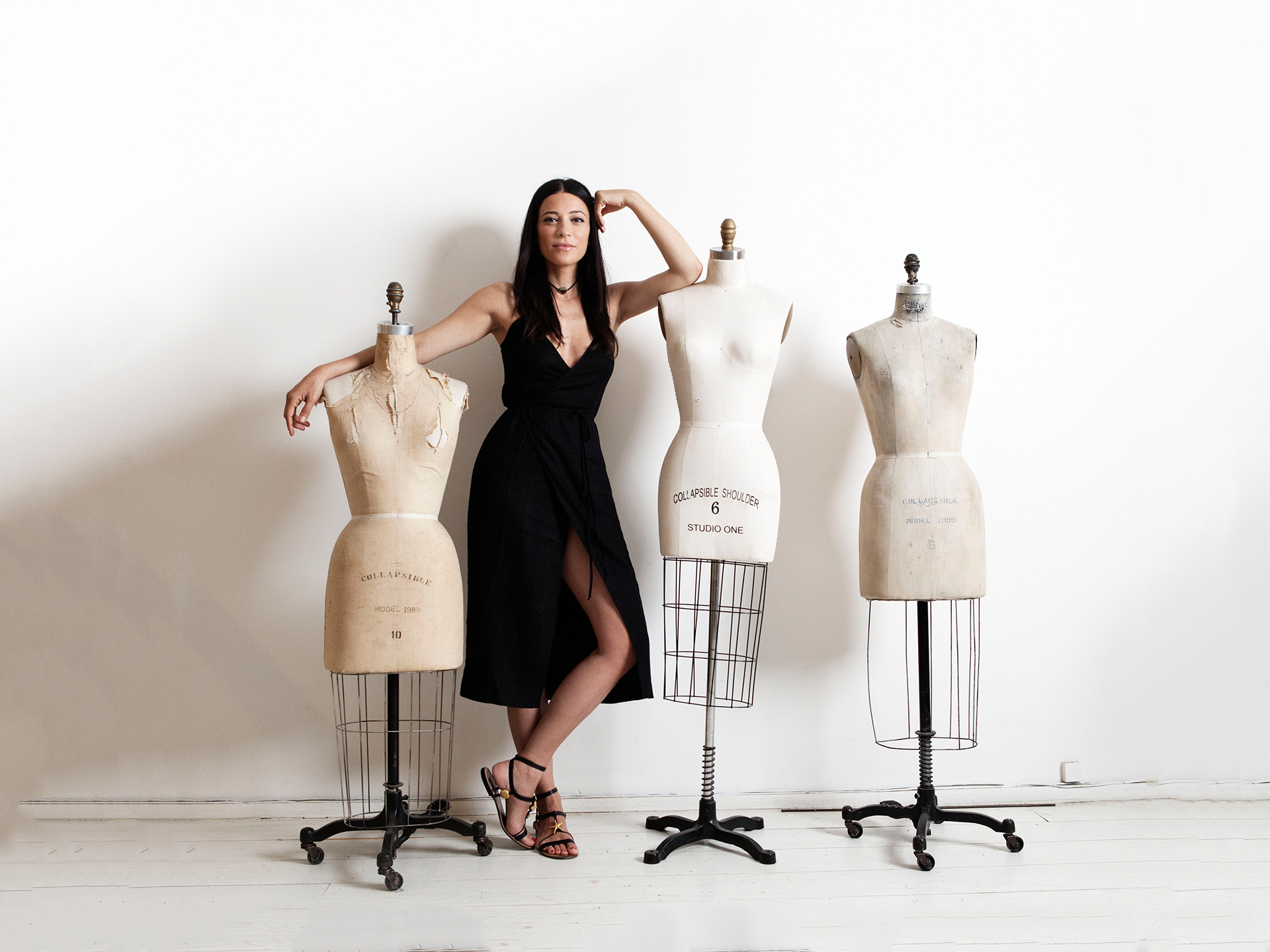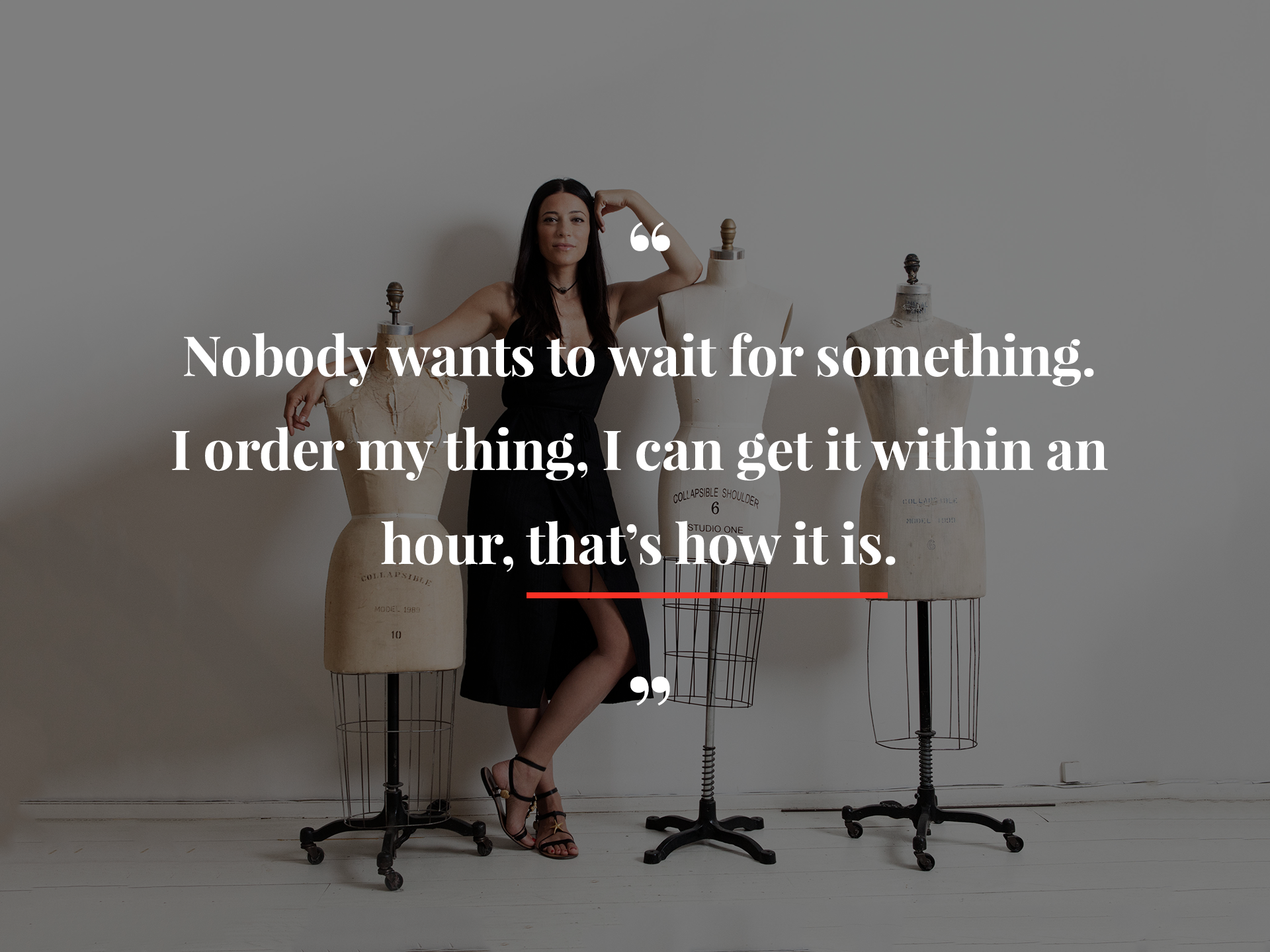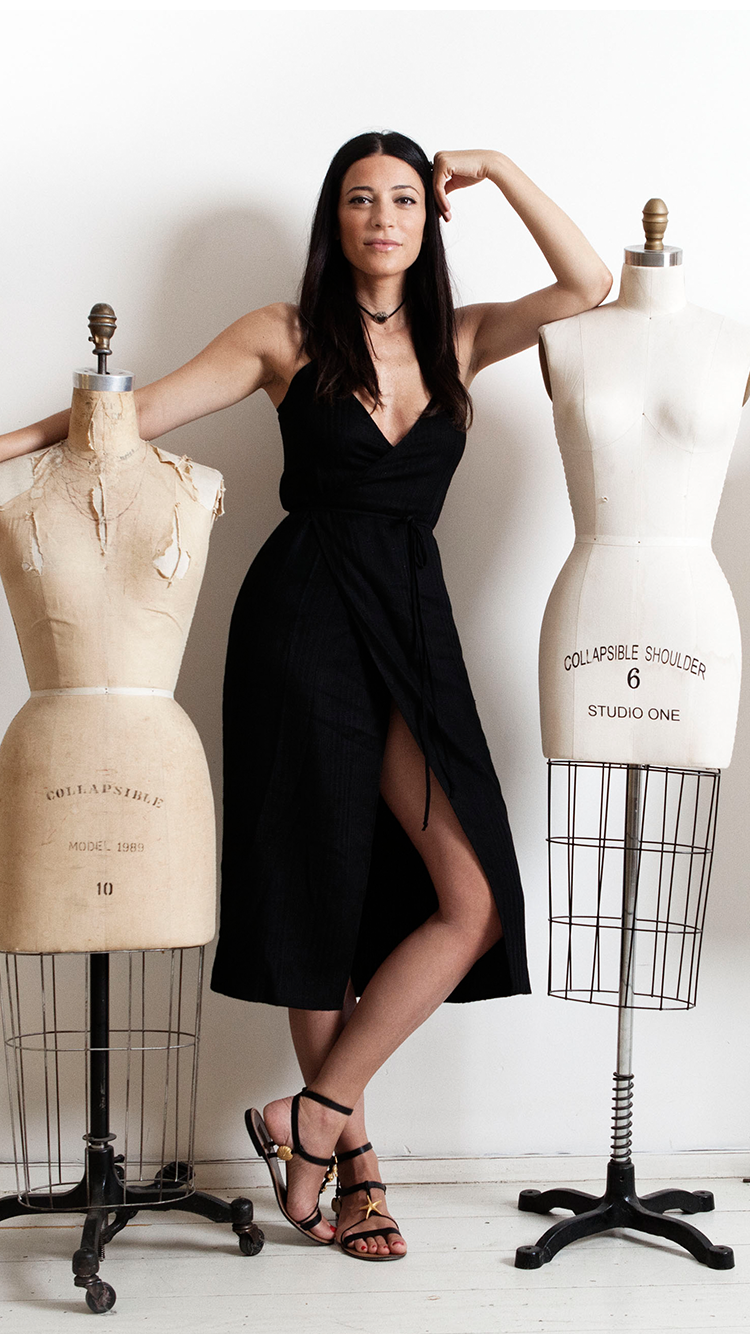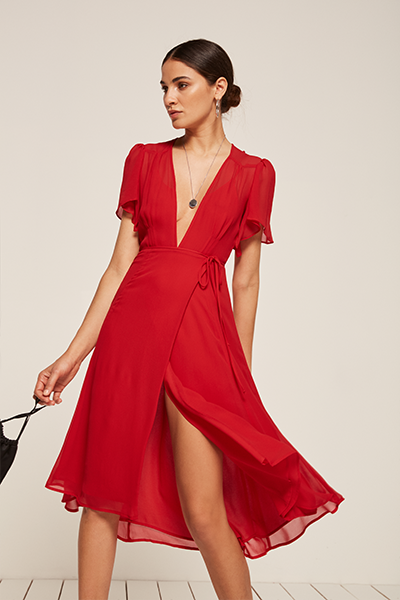At a time when fashion is in a state of flux, we're looking to the industry's next generation of influencers as a guiding light. This New York Fashion Week, Refinery29's Future of American Fashion series is highlighting the designers, brands, and retailers we're betting on big. The future starts here.
As department stores continue to crumble, Reformation founder and CEO Yael Aflalo has some valuable advice: “The future of fashion is fast.” Of course, the 39-year-old entrepreneur follows this mantra herself as she ships 52 deliveries a year of her insouciant printed dresses and cut-to-there, constantly sold-out bodysuits that are worn by the likes of Sienna Miller and Emily Ratajkowski. “A typical fashion brand ships four times a year; there’s just no benefit to designing clothes 18 months in advance,” she says. “You only get to learn [about your customer] four times a year, then — that’s not much learning.”
AdvertisementADVERTISEMENT
Aside from being educated by her woman (and subsequently giving her what she actually wants), Aflalo credits the immediacy of our culture — the rise of Instagram and Snapchat and same-day Amazon Prime deliveries — for our insatiable desire for new, new, new. “Everything is fast now,” she continues. “Nobody wants to wait for something. I order my thing, I can get it within an hour. That’s how it is.”
Sustainability Is Cool
Aflalo prides herself on Reformation's sustainable initiatives as much as being “customer obsessed.” Following Elon Musk’s First Principal Thinking, she says, “Fast-fashion does not mean that it’s worse for the environment. The only examples that we have of fast-fashion are cheap companies that make clothing out of very bad materials, so we equate fast-fashion with bad for the environment or low quality, that people buy more of and throw away, creating this disposable culture.”
For that reason, Reformation’s pieces are not throw-away clothes. Since launching in 2009, Aflalo has sourced covetable sustainable, vintage, and deadstock fabrics for her collections, and designed, manufactured, packed, and shipped her offerings from her Los Angeles headquarters. Since this past Earth Day, she even started introducing tours of her new Downtown L.A. factory so customers can actually see where the magic happens. She credits her ingenious RefScale, an internal tool meant to calculate waste footprints, as what keeps her team accountable — last quarter, she says, the brand's clothes created 53% less waste and used 77% less water than its competitors.
AdvertisementADVERTISEMENT
“I think that climate change is the biggest issue facing the world, and I’m often surprised that more people don’t get into action about it, but that’s okay,” she says. “I know how to make clothes and so I decided that I should start a sustainable fashion brand. That’s my part.”
Creeping Into The Zeitgeist
That Reformation has become so popular, while still being environmentally aware, is what Aflalo calls the brand's “differentiator.” Mainly it has to do with the fact that her “vintage-inspired” pieces don’t look like blah reinterpretations of something you would find in your great grandmother’s closet, but modern versions of what’s trending now: crop tops, off-the-shoulder blouses, two-piece sets, and deep-V high-slit wrap dresses.
Consider denim, which it launched earlier this spring. The first delivery sold out immediately simply because Aflalo and her team tested the product themselves — novel approach, sure. Even the front-to-back 180-degree zipper jeans, a “riff off the viral Vetements jeans from a few seasons ago," is currently out of stock with a never-ending waitlist. “We’re never going to launch a category, hire a big team, put a lot of marketing dollars behind it, hire an expensive model, and put it everywhere. We never do that. Never,” she says. Denim came about more organically: The team had been slowly testing their in-house styles for eight months before proliferating any. “A typical company will start with one really great jean and go from there, we’re like, ‘Let’s start with 30 jeans and work our way down to four,'” she explains.
AdvertisementADVERTISEMENT
The Path Forward
Aflalo is planning to launch at least two categories a year with the brand, and is even more eager about continuing its retail footprint. Seven Reformation stores have opened this year, with a third New York location on Bond Street up next (Aflalo plans to open eight to 12 stores a year for the next five years). She developed her forward-thinking tech heavy retail concept, complete with touchscreen dressing-room mirrors in February, an investment that is Aflalo’s way of saying traditional retail isn’t going anywhere.
“Brick-and-mortar isn’t bad, it’s an important part of the consumer experience,” she says. “I think as more direct-to-consumer brands offering good value move to traditional brick-and-mortar, you’ll see brick-and-mortar do well again. Warby Parker is doing really well at retail; Reformation is doing really well at retail.” It’s a pretty strong comparison considering Warby Parker is expected to rake in $250 million in revenue this year, but like the direct-to-consumer eyewear company, Reformation boutiques are filled with a set of Cool Girls waiting for their turn in the mirror.
Such great success in such a short amount of time has also yielded numerous wannabe competitors; new labels like Rouje and Réalisation Par, seem to want a piece of the Reformation pie, but Aflalo isn't worried about that. “I see a lot of copycat brands and sometimes I’ll order them and then I’ll be like, ‘Okay! I feel better!’ It’s not a good fit, or the fabric qualities are bad. You can copy something, but I don’t think our principles are there,” she says.
AdvertisementADVERTISEMENT
Scale and growth continue to be number one for Reformation, as Aflalo reaches her goal to bring sustainable fashion to the masses. “We’re not the cool little brand anymore that a few people know about, and there are people that only want to wear those types of brands,” she says. “We’re bigger now, and that’s okay. We’re not a secret.”
Related Video:
AdvertisementADVERTISEMENT


















